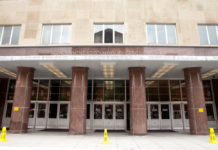Protest challenging the agency’s technical evaluation is sustained, where the awardee’s technical proposal relied on a Department of Energy report that called into question the possibility of success, but the record contained no evidence the agency reasonably evaluated the viability of this approach, as required by the terms of the solicitation.
Savannah River Technology & Remediation LLC and Fluor Westinghouse Liquid Waste Services LLC protested the Department of Energy’s award of a contract to process and stabilize liquid radioactive nuclear waste to Savannah River EcoManagement LLC, arguing that the agency misevaluated proposals.
As an initial matter, GAO found several of the protesters’ allegations were untimely. SRTR challenged the agency’s past performance evaluation of the awardee, arguing that SRE was improperly given full credit for performing the entire predecessor contracts it referenced, including the incumbent contract. According to SRTR, although companies on the SRE team also performed on a team for the predecessor contracts, they performed only a small portion of that work. However, GAO found the agency had informed offerors that it intended to credit each member of a predecessor LLC with performance of the entire contract where the offeror represented that its team member performed the entire contract, and also provided firms with an opportunity to revise their proposals in light of that advice. If SRTR believed that was improper, it was required to protest the terms of the solicitation prior to the deadline for submitting proposals.
GAO also dismissed other protest grounds raised for the first time in the protesters’ comments on the agency report responding to the protest. GAO found that these arguments were based on information from sources available to the protesters prior to their receipt of the agency report—including the technical evaluation report and source selection documents—and therefore were not timely filed. GAO also considered several of FW’s protest grounds abandoned, as the protester failed to mention certain arguments after its receipt of the agency report.
In its other protest grounds, SRTR argued that the agency unreasonably failed to evaluate the viability of SRE’s technical approach for processing nuclear waste. SRTR argued that no one had successfully processed waste at the concentration proposed by SRE and that the only available DOE study highlighted the dangers of this approach. SRTR argued that the agency simply failed to evaluate these considerations when it evaluated proposals and maintained that, had the agency done so, it would have concluded that SRE’s technical approach was not viable. In support, SRTR noted that SRE’s proposal relies entirely on the findings of the DOE study, which did not demonstrate the viability of SRE’s proposed approach, and instead showed that the approach may in fact not be possible.
GAO sustained this aspect of SRTR’s protest. Although SRE’s technical approach relies on processing waste has ever been demonstrated, either in a laboratory setting or in practice, the evaluation record is devoid of any discussion of this concern, or any conclusion regarding the agency’s view of the probability for success of the SRE technical approach.
During the protest, the agency countered that it had considered the report and sought input from a subject matter expert who suggested possible approaches to mitigating the risks. However, GAO found this post hoc information unavailing. In comments on the protest, the evaluation board chairman described the results of the test report as uncertain and noted that one of the proposed solutions was an undeveloped technical improvement. Finally, GAO noted that SRE’s approach provided a competitive advantage, because it would allow the awardee to process less waste, but only if it were successful. Under these circumstance, GAO concluded that the agency unreasonably failed to evaluate the viability of SRE’s proposed technical solution and sustained the protest on these grounds.
SRTR and FW raised a number of remaining technical and cost issues relating to the agency’s evaluation of the SRE proposal, which GAO dismissed in light of its findings regarding the technical evaluation. Until the agency is able to reach a firm conclusion about the viability of SRE’s proposed approach, GAO found no need to consider issues that could be rendered either immaterial by a reevaluation, or premature based on a revision to the SRE proposal that may make material changes to SRE’s approach.
FW also challenged the agency’s past performance evaluation, arguing that the agency failed to consider a number of performance problems experienced by team members of SRE. FW identified a number of instances that it claims should have resulted in the agency downgrading SRE’s past performance rating. However, GAO found the agency did consider these issues, and merely reached a different conclusion than the one favored by the protester.
FW also argued that the agency unreasonably evaluated its proposal under the key personnel and organization factor in general, and also that it misevaluated its engineering and technology manager and its business manager in particular. However, GAO noted that FW’s allegations principally related to the assignment of adjectival ratings, but did not show the agency substantively erred in evaluating its proposal under this factor.
Savannah River Technology & Remediation LLC is represented by Jason A. Carey, J. Hunter Bennett, Luke W. Meier, John W. Sorrenti, and Evan Sherwood of Covington & Burling, LLP. Fluor Westinghouse Liquid Waste Services LLC is represented by Michael J. Schaengold, Paul F. McQuade, Mellisa P. Prusock, and Danielle K. Muenzfeld of Greenberg Traurig LLP. Savannah River EcoManagement is represented by Kenneth B. Weckstein, Pamela Reynolds, Tammy Hopkins, and Andrew C. Crawford of Brown Rudnick, LLP.
The government is represented by Kevin R. Hilferty, James Jurich, Marianna Lvovsky, Sky W. Smith, and Stephanie B. Young, Department of Energy. GAO attorneys Scott H. Riback and Tania Calhoun participated in the preparation of the decision.



